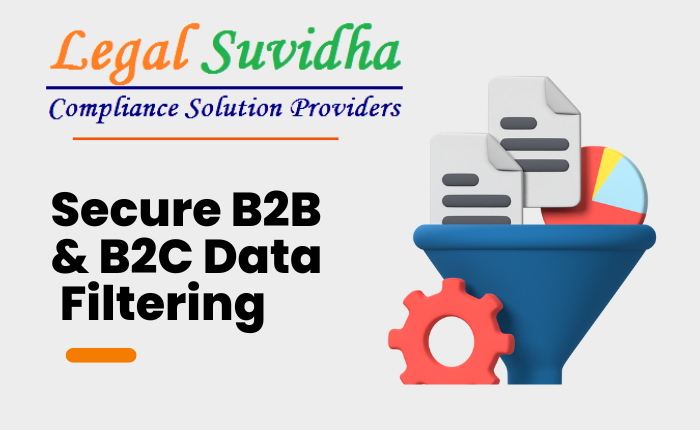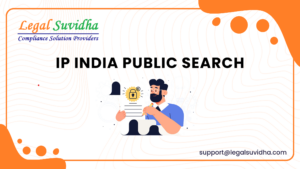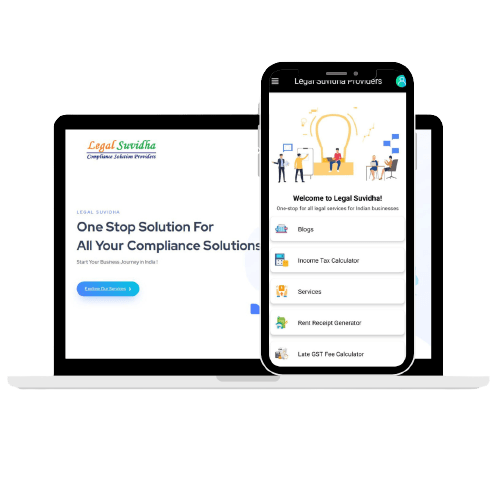In recent years, there has been a significant shift towards digitization in various sectors, including taxation. With the implementation of Goods and Services Tax (GST) e-invoicing, businesses are required to generate and authenticate invoices electronically. This digital transformation brings many benefits, such as improved efficiency and reduced paperwork. However, it also raises concerns about data security and privacy. This blog explores the data security considerations involved in filtering business-to-business (B2B) and business-to-consumer (B2C) data in GST e-invoicing.
Understanding GST E-invoicing:
GST e-invoicing is a system that mandates businesses to generate structured electronic invoices and authenticate them on the Government GST portal before the transaction is considered valid. This process ensures seamless data integration between businesses and the tax authorities, enhancing transparency and reducing tax evasion.
Data Filtering in GST E-invoicing:
When it comes to filtering B2B and B2C data in GST e-invoicing, businesses must handle the data with utmost care to maintain confidentiality and compliance. Here are some key considerations for data security:
1. Segregation of Data: Businesses need to separate B2B and B2C data to ensure accurate reporting and comply with the respective GST regulations. Implementing robust data segregation practices prevents any mixing or leakage of sensitive information.
2. Secure Data Transmission: Data transmission from businesses to the GST portal must be done through secure channels, such as encrypted connections or secure file transfer protocols. This ensures that the data remains protected during transit and reduces the risk of interception or unauthorized access.
3. Role-Based Access Control: Access to GST e-invoicing systems should be granted based on specific roles and responsibilities. This ensures that only authorized personnel can view, process, or modify the data. Role-based access control minimizes the risk of data breaches caused by internal sources.
4. Data Encryption: Encrypting sensitive data, both at rest and in transit, adds an additional layer of protection. Encryption converts the data into an unreadable format, making it useless to unauthorized individuals even if they manage to access it. Employing strong encryption algorithms and practices helps safeguard the data from potential threats.
5. Regular Data Backup: Creating regular backups of GST e-invoicing data is essential to protect against data loss due to system failures, cyberattacks, or natural disasters. Backups should be stored in secure locations, separate from the primary system, to ensure quick data recovery if required.
6. Monitoring and Auditing: Continuous monitoring and auditing of the GST e-invoicing system can help identify any suspicious activities or potential security breaches. Implementing intrusion detection systems and maintaining comprehensive logs of system activities can assist in the timely detection and response to any security incidents.
7. Data Retention and Disposal: It is crucial to adhere to the prescribed data retention policies mandated by tax authorities. Retaining data for longer than required can increase the risk of unauthorized access. Similarly, ensuring secure disposal methods for data that has reached the end of its retention period is vital to prevent any potential data leaks.
1. E-invoicing software: E-invoicing software is a comprehensive solution designed to manage the entire invoicing process electronically. These software solutions often include advanced filtering capabilities that can automatically categorize invoices based on specific criteria. Businesses can define rules within the software to identify B2B and B2C transactions, taking into account factors such as customer type, invoice amount, or GSTIN. The software can then segregate and organize the invoices accordingly, simplifying compliance with GST regulations and facilitating efficient data management.
2. Robotic Process Automation (RPA) tools: RPA tools enable businesses to automate repetitive tasks involved in processing e-invoices. These tools can be configured to extract relevant data from invoices and apply filters to distinguish between B2B and B2C transactions. RPA tools can integrate with existing systems, such as accounting or enterprise resource planning (ERP) software, to streamline the filtering process. By leveraging RPA, businesses can significantly reduce manual efforts, increase accuracy, and improve the overall efficiency of their GST e-invoicing operations.
3. Optical Character Recognition (OCR) technology: OCR technology plays a crucial role in digitizing paper-based invoices or scanned copies. It converts scanned or image-based invoices into machine-readable text, allowing businesses to extract relevant data fields automatically. OCR tools can capture key information such as customer details, transaction amounts, and invoice numbers. This extracted data can then be utilized to apply filters and identify B2B and B2C transactions. By leveraging OCR technology, businesses can eliminate the need for manual data entry, reduce errors, and speed up the filtering process.
4. Custom scripts and programming: In cases where businesses have specific requirements or unique invoice formats, custom scripts or programming can be developed to handle the filtering of B2B and B2C data in GST e-invoicing. These tailored solutions can be designed to extract and analyze invoice data based on the desired criteria. For example, a custom script can be programmed to identify B2B transactions based on the presence of a valid GSTIN or certain invoice values. By employing custom scripts, businesses can ensure accurate filtering and achieve a high degree of customization in their GST e-invoicing processes.
5. Data analytics and reporting tools: Advanced data analytics and reporting tools can provide businesses with valuable insights into their e-invoice data. These tools can analyze large volumes of invoices and generate reports on B2B and B2C transactions. With such tools, businesses can gain visibility into customer behavior, transaction patterns, and compliance with GST regulations. Analyzing this data can help businesses make informed decisions, identify opportunities for improvement, and ensure adherence to GST requirements.
It’s important to note that the availability and specific features of automation tools may vary depending on the country and the software providers. When considering automation tools for filtering B2B and B2C data in GST e-invoicing, it’s essential to evaluate factors such as compatibility, scalability, ease of integration, and the ability to meet your specific business requirements and compliance needs.
Strategies for efficient filtering of B2B and B2C data in GST e-invoicing
Filtering B2B (Business-to-Business) and B2C (Business-to-Consumer) data in GST e-invoicing requires careful consideration to ensure efficient and accurate classification. Here are some strategies for efficient filtering:
1. Identify GSTIN (Goods and Services Tax Identification Number): The GSTIN is a unique identification number assigned to each registered taxpayer. It helps differentiate between B2B and B2C transactions. Use the GSTIN to determine whether the transaction is between two businesses (B2B) or involving a consumer (B2C).
2. Check invoice details: Analyze the invoice details to determine if the transaction involves a registered business or an unregistered consumer. Look for specific information such as the customer’s name, address, and GSTIN, which are typically present in B2B transactions. Unregistered consumers may not have a GSTIN, and their invoices may lack business-related information.
3. Implement validation rules: Create validation rules based on GSTIN patterns or other indicators to automatically classify transactions. These rules can be designed to identify B2B transactions based on the presence of a GSTIN and other relevant details. For B2C transactions, look for invoices with missing or incomplete GSTIN information.
4. Utilize AI and machine learning: Train machine learning models using historical data to classify transactions accurately. These models can analyze patterns and indicators to predict the nature of the transaction. Continuously refine the models based on feedback and new data to improve accuracy over time.
5. Leverage APIs and third-party solutions: Integrate with GST e-invoicing APIs and consider utilizing third-party solutions that specialize in data filtering and classification. These solutions often provide advanced algorithms and functionalities to automate the filtering process and ensure compliance with GST regulations.
6. Regularly update and maintain data: Stay updated with the latest GST regulations and maintain a comprehensive database of registered businesses. Regularly update this database to ensure accurate classification of B2B transactions. Also, monitor and update the list of unregistered consumers to correctly identify B2C transactions.
7. Conduct periodic audits: Perform periodic audits of the filtered data to verify the accuracy of the classification. This can help identify any potential errors or discrepancies and make necessary adjustments to improve the filtering process.
Remember, efficient filtering of B2B and B2C data in GST e-invoicing requires a combination of automation, validation rules, and periodic reviews to ensure accuracy and compliance with tax regulations.
If You have any queries then connect with us at [email protected] or [email protected] & contact us & stay updated with our latest blogs & articles





















